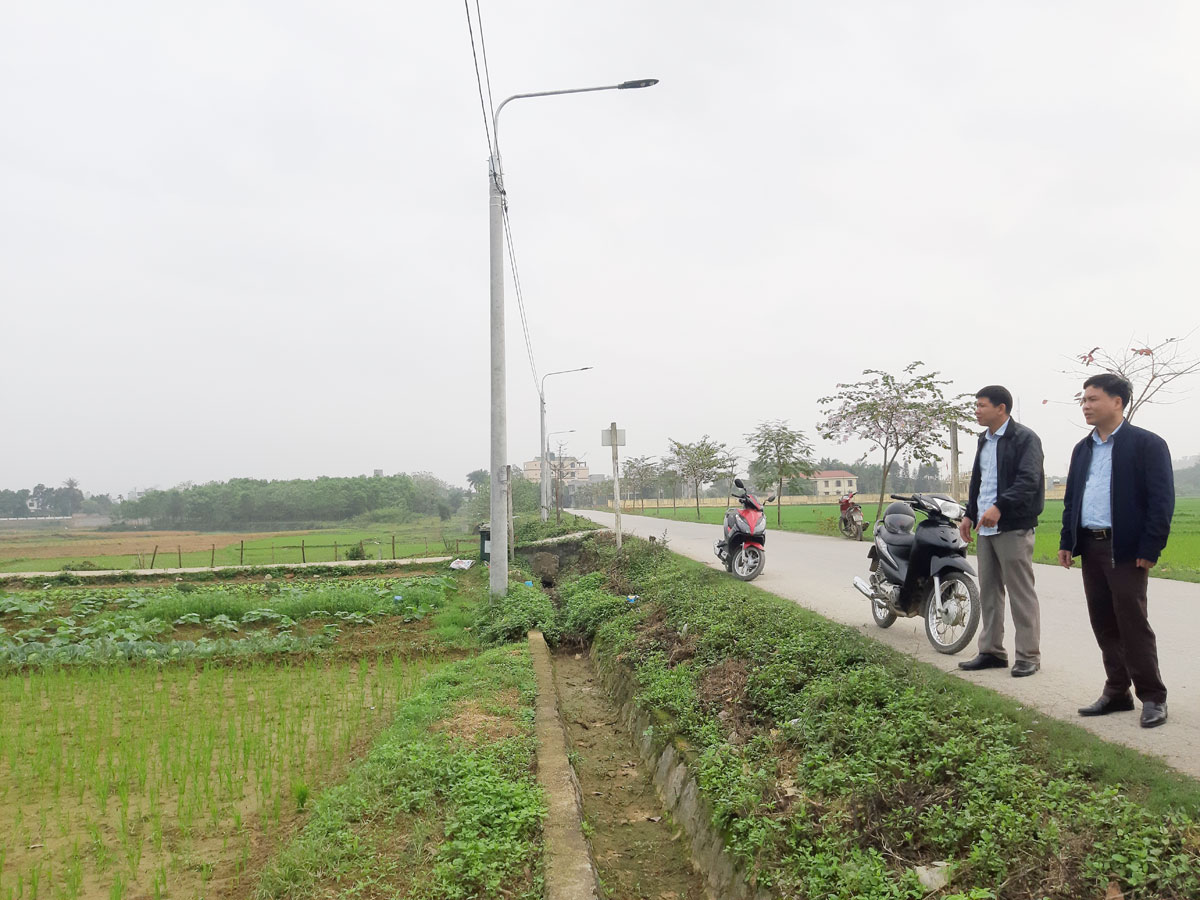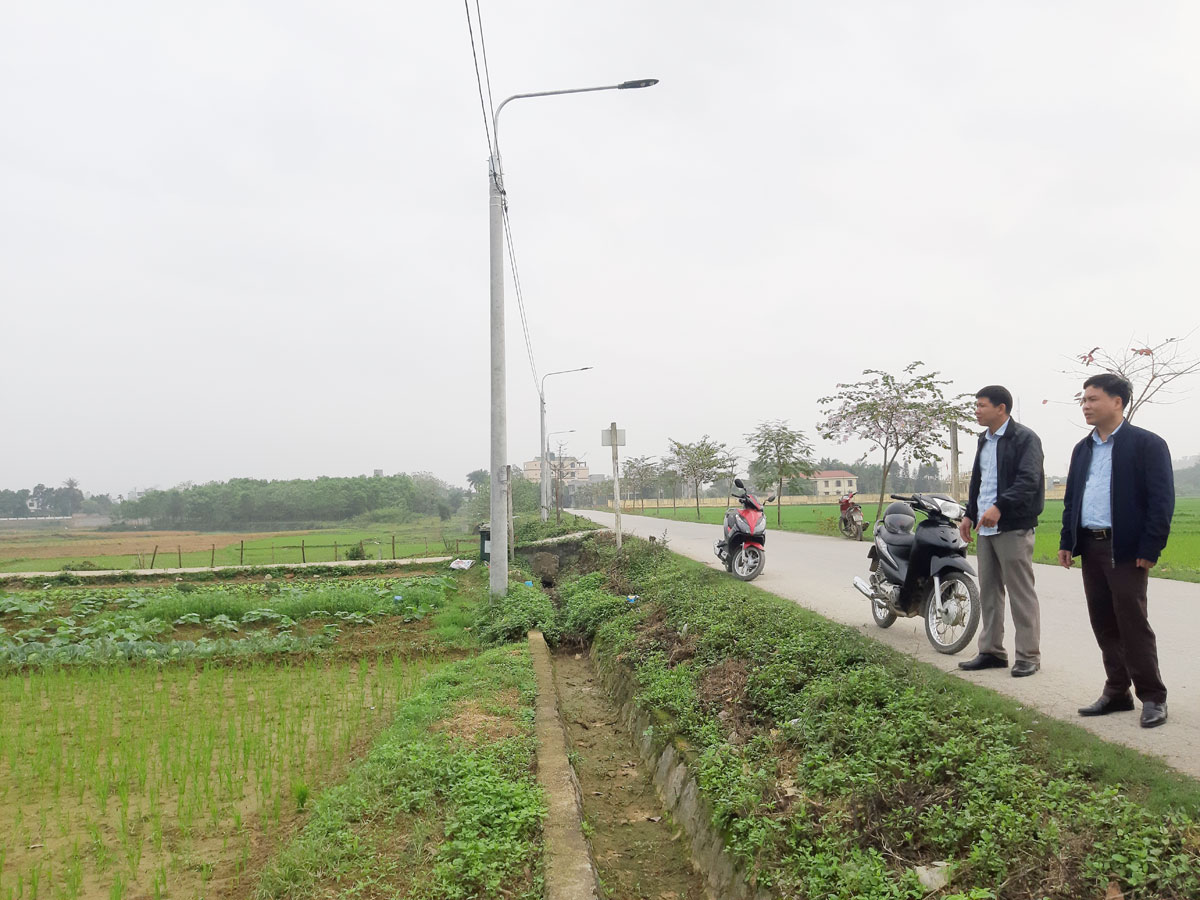
(HBO) – The People’s Council of Hoa Binh province has set a target of collecting 5.07 trillion for the State budget in 2021, up 23 percent year-on-year. Of the sum, domestic revenue is hoped to reach 4.82 trillion VND and the remainder of 250 billion VND comes from exports.
The provincial Party Committee and provincial People’s Committee are drastically
instructing relevant agencies and relevant sectors to strengthen management and
well exploit sources of revenues, especially revenues from land auctions, and
speed up the collection of tax arrears with the aim of completing 50 percent of
the State budget collection estimate for the whole year.
 Luong Son district actively exploits revenues
from auctions of land use rights. Photo:
The district completes land clearance for land use right auctions in Dong Tien
hamlet, Xuan Vinh commune.
Luong Son district actively exploits revenues
from auctions of land use rights. Photo:
The district completes land clearance for land use right auctions in Dong Tien
hamlet, Xuan Vinh commune.
Localities such as Hoa Binh city
and Luong Son district have coordinated with relevant agencies to create
revenues from land. The provincial Customs Sub-department has speeding up the
reform of administrative procedures to shorten the time and costs for
enterprises, facilitating their tax payment.
The State budget revenue of Hoa Binh in the first quarter of 2021 increased by
71 percent compared to the same period last year.
To complete the State budget collection task in 2021, the
provincial Party Committee and People’s Committee are focusing on directing relevant
sectors to strengthen coordination and synchronously implement solutions in
accordance with the provincial People's Committee’s Directive No.03 on major
tasks and measures to fulfill socio-economic development plans and State budget
estimates in 2021.
The locality is striving to complete 50 percent of the State budget revenue target
of 2021 in the first six months of the year.
Attention will be paid to removing difficulties for production and business activities,
improving the investment environment of the locality, and facilitating
investment projects towards creating sustainable State budget revenues./.
According to data from the Hoa Binh Provincial Party Committee, the industrial production index for the first six months of 2025 is estimated to have increased by 20% compared to the same period last year. This marks the highest year-on-year growth rate for this period since 2020.
In the first six months of 2025, Hoa Binh province’s export turnover was estimated at 1.145 billion USD, marking an 18.11% increase compared to the same period in 2024. Import turnover was estimated at $ 804 million, a 17.15% increase, which helped the province maintain a positive trade balance.
The lives of the ethnic minority farmers in Tan Lac district have gradually improved thanks to the new directions in agricultural production. This is a testament to the collective strength fostered through the professional associations and groups implemented by various levels of the district’s Farmers’ Union.
With the motto the "product quality comes first,” after nearly one year of establishment and operation, Muong village’s Clean Food Agricultural and Commercial Cooperative, located in Cau Hamlet, Hung Son Commune (Kim Boi district), has launched reputable, high-quality agricultural products to the market that are well-received by consumers. The products such as Muong village’s pork sausage, salt-cured chicken, and salt-cured pork hocks have gradually carved out a place in the market and they are on the path to obtaining the OCOP certification.
In the past, the phrase "bumper harvest, rock-bottom prices" was a familiar refrain for Vietnamese farmers engaged in fragmented, small-scale agriculture. But today, a new spirit is emerging across rural areas of Hoa Binh province - one of collaboration, organisation, and collective economic models that provide a stable foundation for production.
Maintaining growing area codes and packing facility codes in accordance with regulations is a mandatory requirement for agricultural products to be eligible for export. Recently, the Department of Agriculture and Environment of Hoa Binh province has intensified technical supervision of designated farming areas and packing facilities to safeguard the "green passport" that enables its products to access international markets.



 Luong Son district actively exploits revenues
from auctions of land use rights. Photo:
The district completes land clearance for land use right auctions in Dong Tien
hamlet, Xuan Vinh commune.
Luong Son district actively exploits revenues
from auctions of land use rights. Photo:
The district completes land clearance for land use right auctions in Dong Tien
hamlet, Xuan Vinh commune.